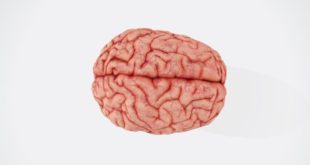Human skeletal muscles have an epigenetic memory of earlier encounters with growth, according to a Keele University-led study.
According to Seaborne et al, ‘muscle memory’ exists at DNA level. Image credit: Composita.
Using the latest genome wide techniques, Keele University researcher Adam Sharples and colleagues studied over 850,000 sites on human DNA and discovered the genes ‘marked’ or ‘unmarked’ with special chemical ‘tags’ when muscle grows following exercise, then returns back to normal and then grows again following exercise in later life.
Known as epigenetic modifications, these ‘markers’ or ‘tags’ tell the gene whether it should be active or inactive, providing instructions to the gene to turn on or off without changing the DNA itself.
“In this study, we’ve demonstrated the genes in muscle become more untagged with this epigenetic information when it grows following exercise in earlier life,” Dr. Sharples said.
“Importantly, these genes remain untagged even when we lose muscle again, but this untagging helps ‘switch’ the gene on to a greater extent and is associated with greater muscle growth in response to exercise in later life — demonstrating an epigenetic memory of earlier life muscle growth.”
The study, published in the journal Scientific Reports, has important implications in how athletes train, recover from injury, and also has potentially far-reaching consequences for athletes caught cheating.
“If an athlete’s muscle grows, and then they get injured and lose some muscle, it may help their later recovery if we know the genes responsible for muscle memory,” Dr. Sharples said.
“Further research will be important to understand how different exercise programs can help activate these muscle memory genes.”
“If an elite athlete takes performance-enhancing drugs to put on muscle bulk, their muscle may retain a memory of this prior muscle growth,” added Keele University researcher Robert Seaborne.
“If the athlete is caught and given a ban – it may be the case that short bans are not adequate, as they may continue to be at an advantage over their competitors because they have taken drugs earlier in life, despite not taking drugs anymore.”
“More research using drugs to build muscle, rather than exercise used in the present study, is required to confirm this.”
_____
Robert A. Seaborne et al. 2018. Human Skeletal Muscle Possesses an Epigenetic Memory of Hypertrophy. Scientific Reports 8, article number: 1898; doi: 10.1038/s41598-018-20287-3
 #Bizwhiznetwork.com Innovation ΛI |Technology News
#Bizwhiznetwork.com Innovation ΛI |Technology News




